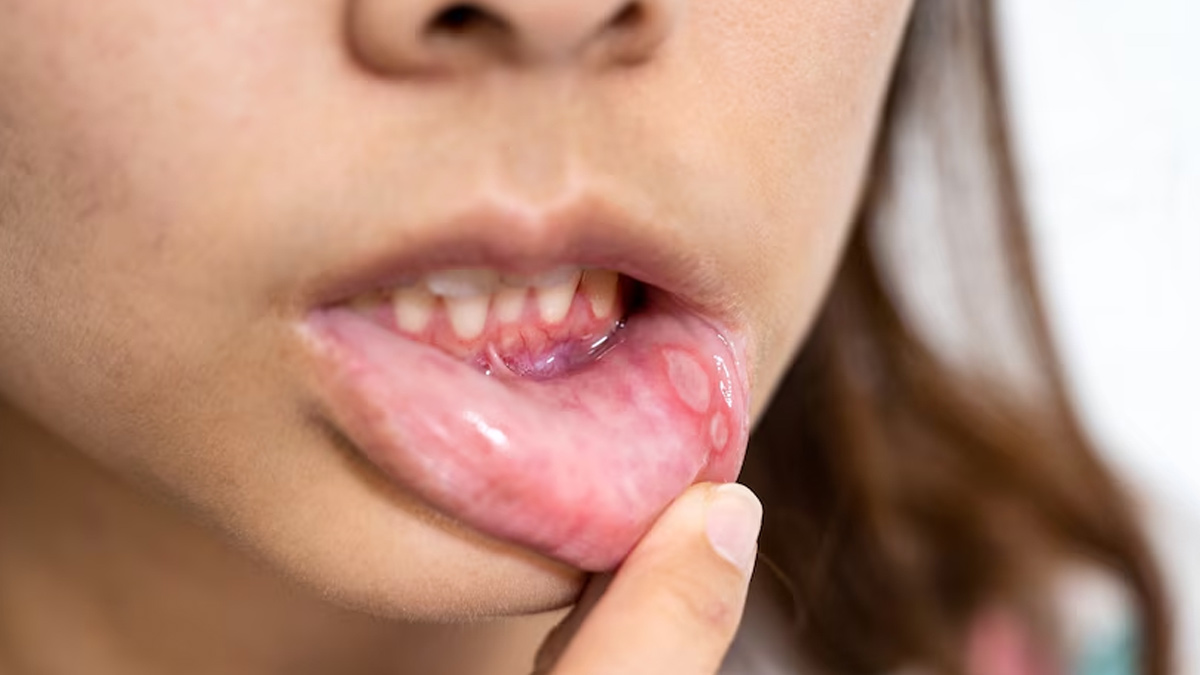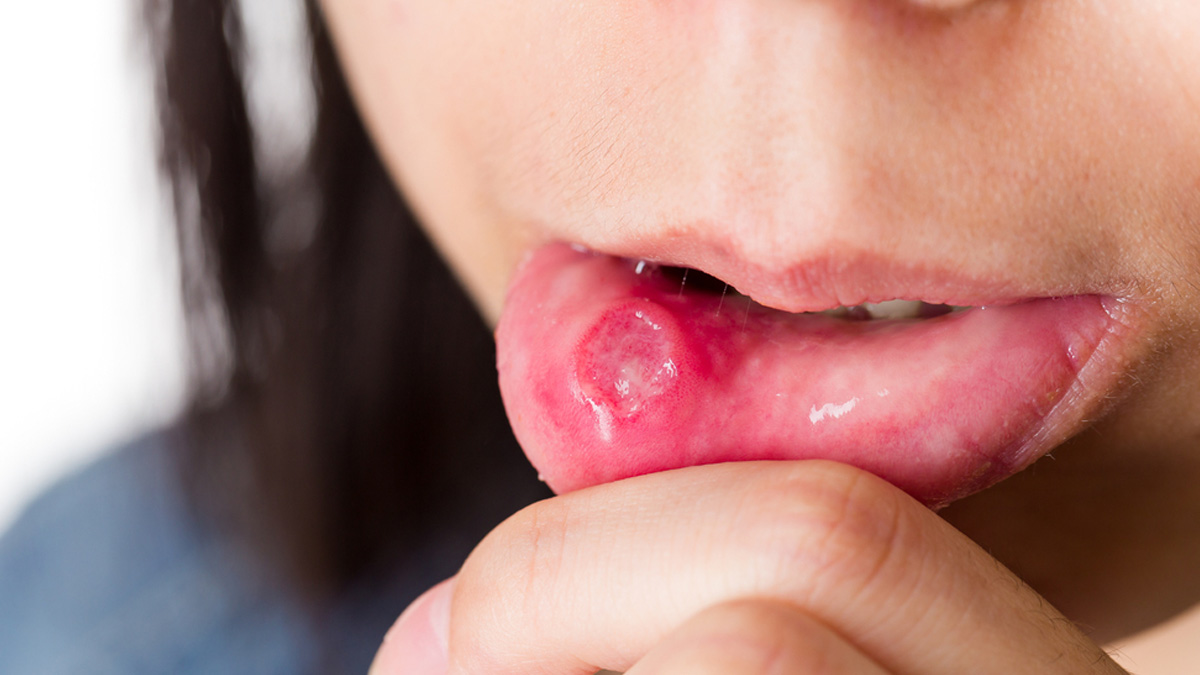
Canker sore, a type of mouth sore that people may experience. These are small and often painful lesions that can appear on any moist, fleshy surface inside the mouth. Generally, mouth sores are harmless and take two to three weeks. How do you know if a mouth ulcer is a symptom of oral cancer or a harmless canker sore?
Table of Content:-
To understand how to make out between canker sore and mouth cancer, OnlyMyHealth interacted with Dr Raj Nagarkar is the Managing Director & Chief of Surgical Oncology & Robotic Services of HCG Manavata Cancer Centre (HCGMCC) & Hospitals.
What Is Mouth Sore?
According to Dr Nagarkar, any ulcer inside the oral cavity (inside the mouth) causing pain or irritation is referred to as a mouth sore. These can occur on the cheek mucosa, tongue, floor of the mouth or palate.
Explaining the causes of mouth sores, Dr Nagarkar said, “The most common cause of mouth sores is attributable to stress to the extent that one type of ulcer, aphthous ulcer is also known as stress ulcer.” Additionally, another significant cause is nutritional deficiency, including deficiencies in vitamins such as B12 and folic acid, as well as iron deficiency.

Talking about the symptoms of mouth sores, Dr Nagarkar said, “The most common symptoms of mouth sores include pain, a burning sensation and difficulty eating spicy foods or experiencing a constant tingling sensation inside the mouth. Patients complain of difficulty in eating and swallowing food.”
Also read: Mouth Cancer: What Are The Symptoms To Watch Out For
What Is Mouth Cancer?
Dr Nagarkar explained that mouth cancer refers to any abnormal growth within the oral cavity, which may manifest as a lump, swelling, red patch, white patch, ulceroproliferative lesion or a combination thereof. “If such lesions fail to heal within 2 to 3 weeks despite treatment or removal of the underlying cause, they warrant further evaluation. In approximately 90 per cent of cases, tobacco is identified as the primary causative factor in oral cancer.” Dr Nagarkar said.
Symptoms of Mouth Cancer
Symptoms of oral cancer are typically not painful at the initial stage, unless it involves the nerve of the affected area. “Usually, oral cancer presents as an ulcerative lesion that fails to heal despite symptomatic treatment. It may also appear as a red or white patch,”Dr Nagarkar said.
Additionally, in cases where oral cancer affects the cheek, it can penetrate the mucosa into the muscles, or even protrude externally from the skin, forming a fungating mass. “When located on the tongue, it may gradually expand, eventually encompassing the entire tongue and extending to the base, hindering swallowing or even protrusion of the tongue,” he added.

Common Symptoms Of Sore Mouth And Mouth Cancer
According to Dr Nagarkar, both mouth sores and oral cancer are identified with the presence of an ulcer in the mouth. However, the difference lies in their response to treatment. “Mouth sores typically resolve with appropriate treatment. For instance, if it is caused by a vitamin deficiency they can be improved with supplementation.”
Also read: Do You Get Mouth Ulcers Frequently? Here’re The Possible Reasons
The oral cancer does not respond to such symptomatic treatments. Giving advice, Dr Nagarkar said, “Any lump or ulcer persisting for more than three weeks after receiving symptomatic treatment, such as vitamin supplementation or tooth removal, a biopsy should be performed to rule out cancer.”
Conclusion
The symptoms of mouth sore and mouth cancer may overlap but there is a difference in the level of pain, intensity and the duration of the symptoms. Usually, a mouth sore is healed in two to three weeks. If it persists for more than that, it is important to rush to the doctor and get proper diagnosis done.
Also watch this video
Read Next
This Acute Diarrhoeal Disease Can Be Fatal: Read On To Know About its Symptoms And Prevention
How we keep this article up to date:
We work with experts and keep a close eye on the latest in health and wellness. Whenever there is a new research or helpful information, we update our articles with accurate and useful advice.
Current Version